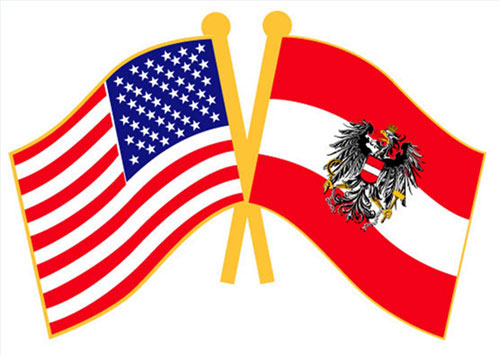
Austria – USA F-1 and J-1 Tax Treaty (Students, Business Trainees & Apprentice)
Article 20 of the US-Austria Treaty provides that, when a resident of Austria goes to the USA for the purpose of full-time education, or for full-time training. The United States may not tax payments received by the student/Trainee/Apprentice for the purpose of his maintenance, education or training from sources outside of the United States.
Under the Austria-US Treaty, student, apprentice, or business trainees are covered under Article 20. Payments are exempt from tax if the source is outside the United States and are for the purpose of the individual’s maintenance, education or training. The individual must be in the USA for the purpose of pursuing full-time education or training.
Note that in the case of a Apprentice or Business Trainee, The exemption from tax provided by Article 20 shall apply only for a period of time not exceeding three (3) years from the date the apprentice or trainee first arrives in the USA for the purpose of his or her training or Apprenticeship.
Does the statement above Distinguish between the Benefit Received by Students Vrs Business Apprentice/ Trainees?
Yes , most F-1 students will continue to enjoy these benefits for a maximum of five(5) years, however Business Apprentices and Trainees with J-1 visas are restricted and can only utilize these benefits for a period of three (3) years only, beginning from the time they first arrived in the USA for their training or apprenticeship
Eg. Richard arrives in the US on Jan 1, 2019 on J-1 visa as a Business Apprentice or Trainee, Richard can take advantage of the benefits provided in Article 20 until Dec 31, 2021
Examples
Q: Suzie, an Austrian is a part-time student at University of Denver – Colorado. She receives payments from Austria that cover her tuition and accommodation. Are these payments taxable in the US?
A: Yes – The provision specifies that the student must be present in the USA for the purpose of full-time education or training. Suzie is only part-time and would not fall under Article 20 of the Austria-US Treaty. Same theory will apply to Business Apprentice or Trainees who are here in the USA on a part time basis.
Q: Suzie, an Austrian is a full-time student at University of Denver – Colorado. She chose to study at University of Denver – Colorado because she was offered an Athletic scholarship. Under the Austria-US Treaty, will Suzie be subject to tax by the US on this scholarship?
A: Yes – The provision states that any payments made to a student must arise from a source outside the United States. Again, same theory will apply to Business Apprentice or Trainees receiving any form of grants, scholarships and fellowships.
According to the IRS, Payments of scholarships, fellowships, and grants paid to U.S. citizens and resident aliens are not reportable to the IRS and are not generally subject to withholding of tax. However, payments of taxable scholarships, fellowships, and grants to nonresident aliens are reportable to the IRS and are subject to withholding of U.S. Federal income tax.
What are taxable scholarships, fellowships, and grants?
All amounts paid to nonresident aliens in the form of scholarships, fellowships, grants, and financial aid, which are not excludible from gross income as a “Non-Taxable or Qualified Scholarship” under I.R.C. 117 must be reported to the IRS, regardless of the amount paid, unless the grant is from sources outside the United States.
A non-taxable scholarship is an amount received as a scholarship grant that covers tuition, fees, books, supplies and equipment required for instruction at the education institution
A Taxable scholarship is an amount issued for any other purpose, including travel, room, board, research, etc. The taxable (nonqualified) portion of a scholarship or fellowship paid to an Australian Student is subject to Federal income tax withholding at a rate of 14% or higher.
***Disclaimer: This communication is not intended as tax advice, and no tax accountant -client relationship results**
